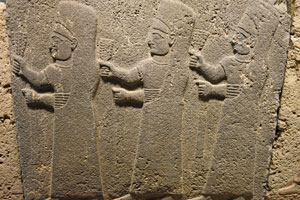Organic Milky Way Einkorn Berries
From Organic Milky Way Einkorn which is grown on the farm
From Organic Milky Way Einkorn which is grown on the farm
An ancient grain for modern times
Take a step back in time (30,000 years or so) and enjoy Weatherbury’s organic einkorn berries in everything from baked goods to soups and salads or use like rice in a berry bowl.
2lbs* ($9.02 ); 5lbs* ($19.11)
Limited to 5lbs/person/order
* 2 and 5 pound bags are packaged in re-sealable bags .
 Einkorn is an ancient grain and Weatherbury Farm is the first farm to offer complete traceability back to the field where it was grown.
Einkorn is an ancient grain and Weatherbury Farm is the first farm to offer complete traceability back to the field where it was grown.Weatherbury Farm’s Einkorn Tracker traces the Milky Way grain back to the field where it was grown, here at Weatherbury Farm.
Weatherbury Farm is one of a handful of farms that produces local grain berries (berries from grains grown on the farm). But we take it a step further and provide, through our grain tracker, complete traceability — information & pictures of how, when, and where the grain was grown.
Imagine, that you are entertaining folks with a salad with einkorn berries, you pull out your cell phone and click on Weatherbury’s Einkorn Tracker, say to the folks at the table, “Einkorn is the world’s oldest grain and it is grown at Weatherbury Farm. Take a look at the grain in the field.”
Use Einkorn Berries in almost any dish calling for grain berries or to add interest to other baked goods.
The terrior of the soil gives our einkorn berries such a wonderful flavor.
Einkorn berries can be used in any recipe calling for wheat berries or farro.
They make an healthy overnight breakfast cereal (as they have been used since ancient times), can be heated so they pop or cooked like rice or risotto for a recipe or used in a salad.
Whether you use Weatherbury Einkorn Berries as a cereal or in baked goods, you provide not only great taste but make them more nourishing.
Weatherbury Farm grows Milky Way Einkorn, an Austrian landrace, which has not been hybridized.
Einkorn contains only 14 chromosomes; modern wheat contains 42. Einkorn doesn’t have the D chromosome, which may be connected with wheat intolerance.
It is easier to digest and contains more protein and higher levels of fat, lutein, phosphorus, pyridoxine, potassium, zinc, and beta-carotene than modern wheat.
And best of all, it tastes great.
There are no preservatives in our berries. Please refrigerate. If you will not be using the berries immediately, please store in the freezer especially in warm weather.

A balsalt wall mural from Gazientep Turkey, dated 900- 700BC of nuns of the Goddess Kubaba holding Spica (“heads of grain”). As wild ancestors of Einkorn were found in this area, it is likely that the Spica may in fact be Einkorn.
Einkorn is the grain that started western civilization. It was harvested by hunter gatherers as long as 30,000 years ago and domesticated in Turkey ~ 8650 BC. Growing einkorn as a crop required a sedentary lifestyle to cultivate it and voila!, civilization began as hunter gathers came to settle into villages.
Although grown in ancient Troy and used by the Celts, cultivation of einkorn began to decline in favor of emmer around 2000 BC. By the late 1960s, einkorn was only grown in large amounts in Turkey where it was used as livestock feed.
The use of einkorn has recently enjoyed a resurgence as a “super food,” and its popularity continues to grow. It is also known as farro piccolo.
At Weatherbury Farm, we grow Milky Way Einkorn, an accession from the USDA small grains collection. Collected in 1970 in Vorarlberg, Austria, it was grown out by 40 growers and bulked as the trials looked promising due to yield.
Einkorn is one of the three ancient grains. (Weatherbury Farm also grows the other two, spelt and emmer.)
Even today, Einkorn can be found growing wild in Israel
Einkorn on Mt. Zion, Jerusalem
Einkorn at the City of David, Jerusalem
Einkorn’s (Triticum monococcum) survival for 30,000 years, can be accredited in part to its hard outer hull that protects it from the weather and from insects in storage. Additionally, the hull is surrounded by tiny “hairs”.
Unlike wheat, the hull is not removed during harvest and needs to be removed before it can be milled. Luckily for Weatherbury Farm, Farmer Nigel has built a dehuller to do this job. But there’s more — before the einkorn can be dehulled, the “hairs” must be removed by a debearder.
As a member of the wheat family, einkorn does have gluten (which can be likened to a glue that holds food together) but einkorn’s gluten is different from the gluten in wheat. Gluten, a complex protein, has two parts – gliadin, which gives dough stretchiness and glutentin that provides elasticity and structure. In wheat, these two simpler proteins are in balance; however, einkorn has a higher gliadin to glutenin ration.
Some people who have a wheat allergy or gluten sensitivity report that baked goods made from einkorn flour is easier to digest. However, people with gluten allergies, gluten intolerance or celiac disease should not use it.
